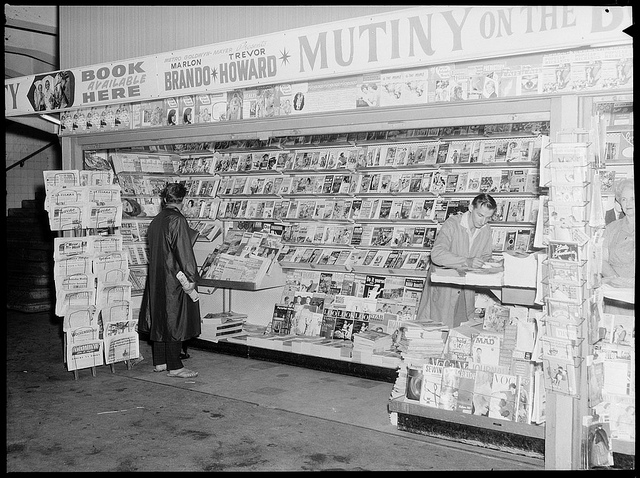In McKinney v. Alabama, 424 U.S. 669 (1976), the Supreme Court found that the defendant’s First Amendment right to freedom of expression and Fourteenth Amendment right of due process had been violated because he was not allowed to contest the obscenity of the materials in question.
McKinney was charged with distributing obscene materials
Chester McKinney, a bookstall operator, was charged with distributing materials known to have been determined as “obscene” by a civil court and was convicted. An Alabama appellate court upheld the conviction, and McKinney appealed to the Supreme Court.
McKinney was not allowed to show the jury the publication in question
The case centered on whether McKinney’s First and Fourteenth Amendment rights were violated by the courts because he was not allowed to show the publication in question to the jury at trial. He contended a violation of both his First Amendment free expression and Fourteenth Amendment due process rights.
McKinney based the defense of his trial around the fact that he did not think that the magazine was obscene and that he was within his rights to sell it. He also thought that he could not be found guilty of selling obscene material unless those trying the case thought the magazine was obscene based solely on contemporary standards. The overseers of the trial declined to put forward this defense and then banned the jury from seeing the magazine.
Court ruled McKinney’s rights were violated
Justice William H. Rehnquist, in delivering the opinion of the Court, stated, “While there can be no doubt under our cases that obscene materials are beyond the protection of the First Amendment . . . those decisions have also consistently recognized that the procedures by which a State ascertains whether certain materials are obscene must be ones which ensure ‘the necessary sensitivity to freedom of expression.’” The Alabama statute, he wrote, did not do this. Therefore, McKinney’s First and Fourteenth Amendment rights were violated, and the ruling of the lower court was overturned.
By not allowing members of the jury to see the magazine and determine for themselves if it was obscene, the petitioner was put at a disadvantage because he could not adequately defend himself. The jury was told not to worry about determining the obscenity of the magazine and could only consider that the publication had already been determined to be obscene by the courts in a previous proceeding.
In concurring, Justice William J. Brennan Jr. pointed to the questionable constitutionality of a number of issues in this case. Among them were the practice of determining the nature of a suspected obscene publication in a civil proceeding prior to the criminal trial, what the burden of proof should be in making such a determination, and other issues stemming from the use of such civil proceedings in preparation for subsequent criminal prosecution of accused offenders.
This article was originally published in 2009. Kaitlyn Kerr Menego was a student at Muskingum University. Walter Huber is a Professor and Chair of the Department of Political Science and Criminal Justice at Muskingum University. He serves as the Director of the University’s Center for Regional Planning and Development.

